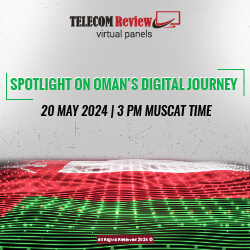By Asoz Rashid, CEO, iQ
Spanning thousands of kilometers across continents, for almost 1,500 years the Silk Road was the world’s biggest trade route subsequently promoting enormous economic and cultural exchanges between Europe and Asia. While the ancient trade routes no longer serve the great needs they once did, the development of modern technology has paved the way for a new route of connectivity and interaction: internet transit. In a constantly growing world that finds itself engulfed and revolving around social media, business communication platforms and entertainment, a strong broadband connection able to penetrate borders and barriers with ease is arguably one of the most valuable assets in the modern world.
Despite the Silk Road’s enormous impact, humanity’s curiosity to always innovate and expand led the way to the creation of dozens of new routes and paths. The ushering of the Age of Discovery and Colonialism changed the way the world interacted and traded. In the same vein, the world now finds itself in a similar quagmire. With an ever-growing population in need of faster speeds and heightened connectivity, newer and more streamlined IP-Transit networks are becoming integral to the way in which the world functions.
For decades now, Egypt’s transit network, operated by Telecom Egypt, has been one of the most important transit routes, allowing for the interconnection between Europe, Africa, and Asia. Situated in the Eastern Mediterranean region between the Suez Canal and the Red Sea, this transit path has enabled the transfer of connectivity and data between continents, in turn bringing people closer together.
However, the lack of transit options has meant that many operators have been forced to solely rely on Egypt’s cables, with a large portion of the world’s connectivity dependent on them. As such, this area has now become a bottleneck, causing a colossal choke point for data transfer in the region, consequently diminishing the utility of the network.
In such an instance, it is vital that businesses do their utmost best to continuously provide new solutions. By providing an alternative and cost-effective transit route between Europe and the Middle East, a new route can be cemented to facilitate the growing demands of internet transit and interrelated technology. Unsurprisingly, major players such as Google are attempting to assert themselves in this context via the “Blue and Raman” network that aims to connect France to India by avoiding Egypt via Jordan. Even so, this would still add to the massive build-up of data traffic in the Eastern Mediterranean region and leave us no better off.
Nevertheless, hope remains. The Silk Road disappeared into non-existence over 500 years ago and has since become a legend. At the epicenter of the route stood the land between the two rivers, now known as Iraq, a country that knows too well the fall from grace. At iQ, our ambitions are determined by the improvement of connectivity and the desire to empower the bleak recent history of Iraq. For this reason, we are ecstatic to announce the most strategic fiber-optic project in the region to date: the Silk Route Transit. And just like its namesake did in the past, this solution aims to contribute to the development of the modern world by providing a clear and streamlined IP-Transit path.
Originally started in 2010, the Silk Route Transit consists of over 2000 kilometers of fiber-optic cable laid across Iraq. Its multilayer fiber-optic network provides the shortest alternative terrestrial route to connect Europe to Asia and will enable users to have high-quality and low-latency-based experiences. As a trailblazing project, it is currently the only viable route that can reduce resistance between the two continents. By changing the direction of traffic from the Eastern Mediterranean, Iraq can simplify the needs of providers and eliminate the need for projects like the Blue-Raman. In short, as a transit hub, Iraq will be able to connect all the neighboring countries and act as the path of least resistance between Europe and Asia.
To complement this transit network, we are also proud to announce that iQ has established the country’s first partnership with Tencent, one of the world’s biggest gaming publishers. The partnership will allow us to provide powerful servers and connectivity to host Tencent services in our data centers. It is a game changer for the gaming community of Iraq as it will decrease latency to as low as 10ms, further entrenching our position as a leader in resolving IP Transit issues and making Iraq the envy of the Middle Eastern gaming community.
Technology continues to move at an unprecedented rate, with valuable advancements occurring daily. The need for connectivity is outweighing the supply, and businesses must do their best to provide the solutions a growing world needs to thrive. Transit networks have become our new trade routes and serve the same purpose as they did in the past. While there is no telling what the future may hold, we are confident that iQ’s reincarnation of the Silk Route will pave the path for a more connected and collaborative world.
For more information on iQ, visit www.iq.group and check We Are iQ on Linkedin, Instagram, Facebook and TikTok.










